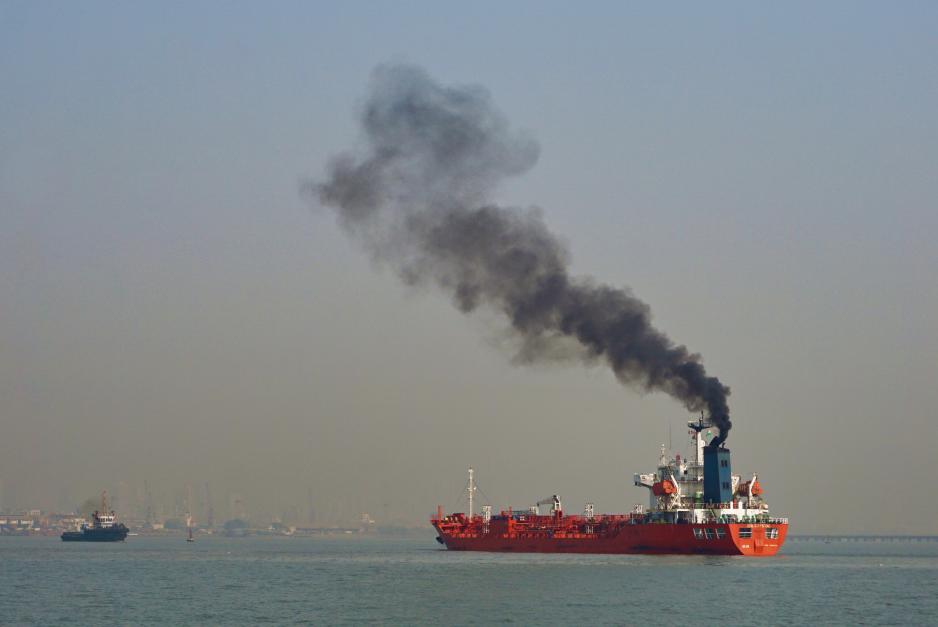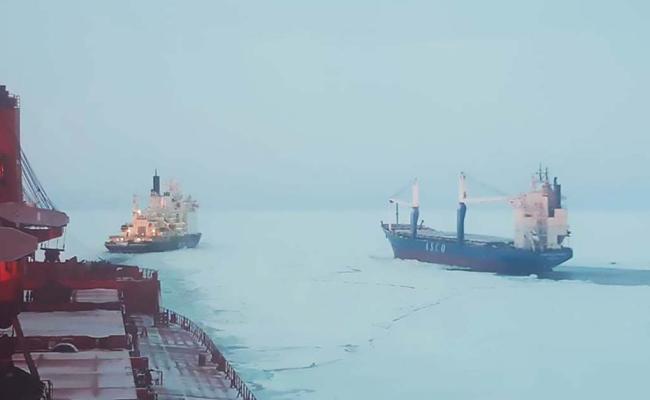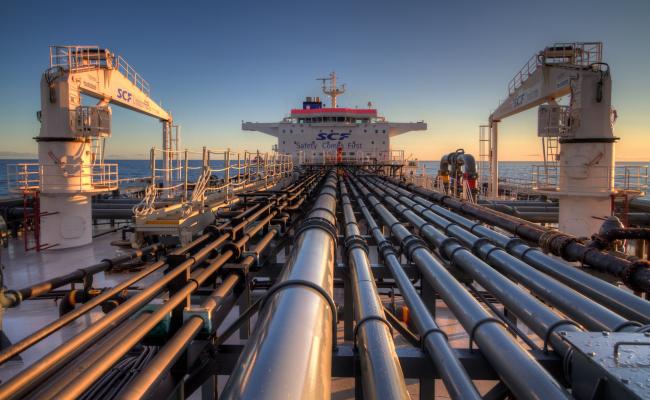IMO Again Fails to Act on Black Carbon Emissions in Arctic

Cargo ship emitting black carbon. (Source: Cyprien Hauser CC BY-ND 2.0)
As Arctic shipping continues to increase so do emissions from maritime transport. Over the past five years black carbon emissions in the Arctic have more than doubled. Hopes to establish binding regulations to reduce this type of pollutant contributing to global warming were dashed this week.
At the end of 2021 the International Maritime Organization (IMO) took first tentative steps to reduce black carbon emissions from shipping in the Arctic. Black carbon emissions in the Arctic region significantly reduce the reflectivity of sea ice thereby amplifying the melting of ice and resulting in increased warming.
Environmental advocates had hoped the IMO would follow up last year’s non-binding resolution with mandatory regulation at this week’s meeting of its Sub-Committee on Pollution Prevention and Response (PPR 9). The organization, however, did not put forth any binding agreement or measures aimed at reducing these types of emissions.
“The IMO has this week completely failed to take any significant steps or agree any action which would see significant reductions in black carbon emissions from shipping and its warming impact on the Arctic,” said Dr Sian Prior, Lead Advisor to the Clean Arctic Alliance, a coalition of 20 non-profit organizations working to protect the Arctic.
Instead of adopting binding regulations to move to cleaner fuels and methods of propulsion to reduce black carbon emissions, the IMO’s sub-committee only agreed to move forward with “goal-based guidance.” This guidance does not prescribe specific measures and leaves actions up to individual member states.
Two Diverging Voices
The IMO’s decision occurred against the backdrop of dire warnings of the Intergovernmental Panel on Climate Change (IPCC) that time to limit global warming to manageable levels is quickly running out and that "rapid, deep and immediate" cuts in emissions are required.
The IMO must face up to its responsibilities.
Both the IMO and the IPCC are bodies of the United Nations. Environmental advocates highlighted the stark contrast between the IMO’s inaction on one hand and the IPCC’s calls for urgent measures on the other.
“For too long, the IMO has been out of step with other UN agencies on climate change and is in effect acting as a rogue element within the UN system. [...] The IMO must face up to its responsibilities, putting its priorities in line with the UN on climate change, and use the collective political power and technological knowhow of the shipping industry to [...] drastically limit shipping’s contribution to the global climate crisis,” explained Prior.
Black carbon is a low hanging fruit
In contrast to CO2 or methane emissions which linger in the atmosphere and contribute to climate change for years or even centuries, black carbon is a short-lived climate forcer. This means its impact is significant in the short term but also decreases towards zero over the course of just days or weeks.
This fact makes the IMO’s inaction even more surprising as black carbon reduction is a low-hanging fruit when it comes to climate change emissions reduction.
“Fortunately, the short-lived nature of black carbon means that reductions in emissions can deliver immediate climate benefits, and with simple regulatory options including a switch to cleaner fuels on the table, action to reduce ship-source black carbon should be politically attractive”, added Prior.
The benefits of reduced black carbon would be felt immediately.
A simple switch of fuels from heavy fuel oils to cleaner-burning distillate fuel would immediately result in a dramatic reduction of black carbon. Environmental advocates had hoped that the IMO would mandate this type of switch to cleaner fuels.
“If all shipping currently using heavy fuel oils while in the Arctic were to switch to distillate fuel, there would be an immediate reduction of around 44 percent in black carbon emissions from these vessels, and the benefits of reduced black carbon would be felt immediately”, said Kåre Press-Kristiansen, Senior advisor for Air Quality & Climate of Green Transition Denmark, a Danish NGO.
With the use of retrofitted filters the reduction could exceed well over 90 percent.
A decade of inaction
While the IMO’s discussions to identify measures to reduce black carbon emissions have been ongoing for 11 years no mandatory rules have been put in place. Instead the organization has delegated the responsibility for action to individual member states who are under no obligations to act on the voluntary guidelines established so far.
Similarly, the IMO’s ban on heavy fuel oils in the Arctic took the better part of two decades to pass in 2021 and contains a plethora of exemptions and loopholes allowing most shipping operators to continue using this type of fuel until near the end of this decade.
“The IMO’s Arctic nations must take the lead, by putting an end to its culture of prevarication and procrastination, by starting today to support and enforce the reduction of black carbon emissions from ships”, Prior concluded.



